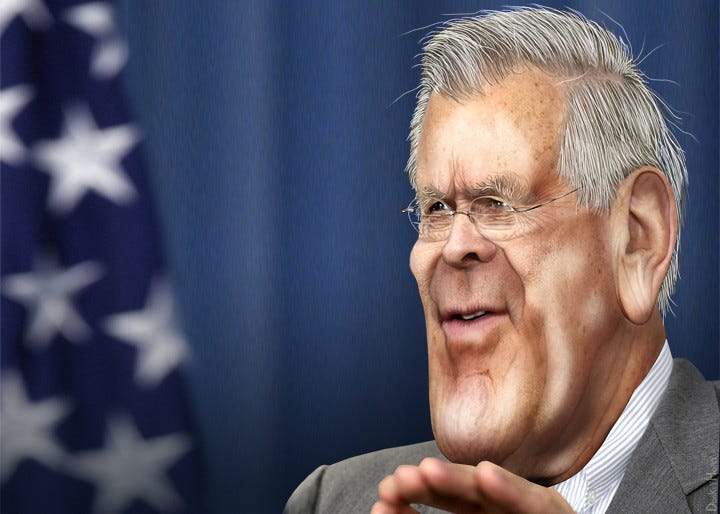Welcome to Just Two Things, which I try to publish daily, five days a week. Some links may also appear on my blog from time to time. Links to the main articles are in cross-heads as well as the story.
#1: Working with bees
There’s a lovely short essay at Plough magazine by Tim Maendle on bee-keeping, specifically about urban bee-keeping. It’s a reminder that bees are essentially strange, and that even when we ‘cultivate’ them, in hives, for example, we are still their guests.
It is not my world. Despite being called a “keeper” I have no control here. I am an observer, capable perhaps of small assistance for the needs I see, or of compensating for the limitations of the manmade boundaries that I put them into. I don’t understand half of what is going on; I am often reminded of that. I can discover a problem only to find the bees are already halfway to fixing it themselves. I have seen a queenless hive, doomed to fail, and rushed out to buy a queen – only to find on my return that the bees were well on the way to making their own, feeding a larva with the special food that transforms her.
(Image: jonahthunder, via Wikimedia, (CC BY-SA 3.0)
The hive, he writes, is a super-organism; different bees have different roles, of course. Foragers collect nectar across a three-to-five mile radius, and live for only a month. “There are nurse bees, cleaners, food processors, and guards who also take care of the hive’s temperature.” Some drones get to mate with the queen, and then die immediately. Hives have their own character, even from day to day.
One hive can work hard at making honey when a hive right next to it, started on the same day, makes hardly any. A hive can be so friendly one day that I wonder if they even notice I am there, working alongside them. On another, especially after a wrong move that startles or threatens them, some signal seems to go out and bees are all around, filling my head with their buzzing and following me away from the hive, waiting to sting after I take off the veil.
His overwhelming sense, you feel, reading the essay, is of how little he knows of the world in which he works: that nature deserves a sense of wonder, and a lot of respect.
#2: Donald Rumsfeld’s legacy
They say that you should not speak ill of the dead, but in the case of Donald Rumsfeld, it seems appropriate to make an exception.
As Ben Burgis reminds us in a column at Jacobin, Rumsfeld is described approvingly by Richard Nixon on The Nixon Tapes as being a “ruthless little bastard,” which is some accolade for a President who was himself notoriously ruthless.
(Caricature of Donald Rumsfeld by DonkeyHotey/flickr. CC BY 2.0)
Burgis writes about Rumsfeld’s world view—one of American hard power, being used, in effect, to demonstrate that American can use hard power, which led to that wave of post 9/11 war-mongering, all to plaudits from people like the journalist Thomas Friedman:
“We don’t know exactly what we’re going to do about it, but if you think we are going to just sit back and take another dose from you, you’re wrong. Meet Don Rumsfeld – he’s even crazier than you are.”
In Iraq, Rumsfeld’s ‘craziness’ extended to more than 650,000 “excess deaths” in Iraq in the three years between the invasion and Rumsfeld leaving office in 2006. That total comes from a peer-reviewed article in the British medical journal The Lancet and represents 2.5% of the country’s population.
But it is not just the deaths: Rumsfeld was complicit—no, even enthusiastic—in abuses such as the euphemistically named “enhanced interrogation techniques”, also known in non-Pentagon English as “torture”. To be fair, some of this was down to the CIA, but much of it was the responsibility of the Department of Defence, which Rumsfeld headed. The Jacobin article includes the infamous image from Abu Ghraib of naked and hooded prisoners forced to form a human pyramid, which still has the power to shock.
At The Atlantic, George Packer writes of Rumsfeld’s ruthless opportunism. Rumsfeld was in the Pentagon on 9/11, and within hours of the attack he was working out how to use it to advantage. Notes taken by an aide on the day catch the train of thought:
“best info fast. Judge whether good enough to hit S.H. [Saddam Hussein] @ same time. Not only UBL [Osama bin Laden].” And later: “Go massive. Sweep it all up. Things related and not.” These fragments convey the whole of Rumsfeld: his decisiveness, his aggression, his faith in hard power, his contempt for procedure. In the end, it didn’t matter what the intelligence said. September 11 was a test of American will and a chance to show it.
As Packer observes, it also didn’t matter, not at all, that all and every one of Rumsfeld’s assertions about the military situation, or the geopolitics of it, turned out to be wrong. Rumsfeld’s judgment, clouded by ideology, was truly terrible:
He believed in regime change but not in nation building, and he thought that a few tens of thousands of troops would be enough to win in Iraq. He thought that the quick overthrow of Saddam’s regime meant mission accomplished. He responded to the looting of Baghdad by saying “Freedom’s untidy,”... He believed that Iraq should be led by a corrupt London banker with a history of deceiving the U.S. government... He dismissed the insurgents as “dead-enders” and humiliated a top general who dared to call them by their true name. He insisted on keeping the number of U.S. troops in Iraq so low that much of the country soon fell to the insurgency.
Right up until his death, Rumsfeld—says Packer—“never expressed a quiver of regret”.
The Jacobin article gently mocks some of the mainstream US obituaries for remembering Rumsfeld’s skill on the squash court or his prowess at one handed push-ups. A paragraph in Packer’s compact piece perhaps serves as a better obituary:
Rumsfeld was the chief advocate of every disaster in the years after September 11. Wherever the United States government contemplated a wrong turn, Rumsfeld was there first with his hard smile—squinting, mocking the cautious, shoving his country deeper into a hole. His fatal judgment was equaled only by his absolute self-assurance. He lacked the courage to doubt himself. He lacked the wisdom to change his mind.
j2t#128
If you are enjoying Just Two Things, please do send it on to a friend or colleague.




